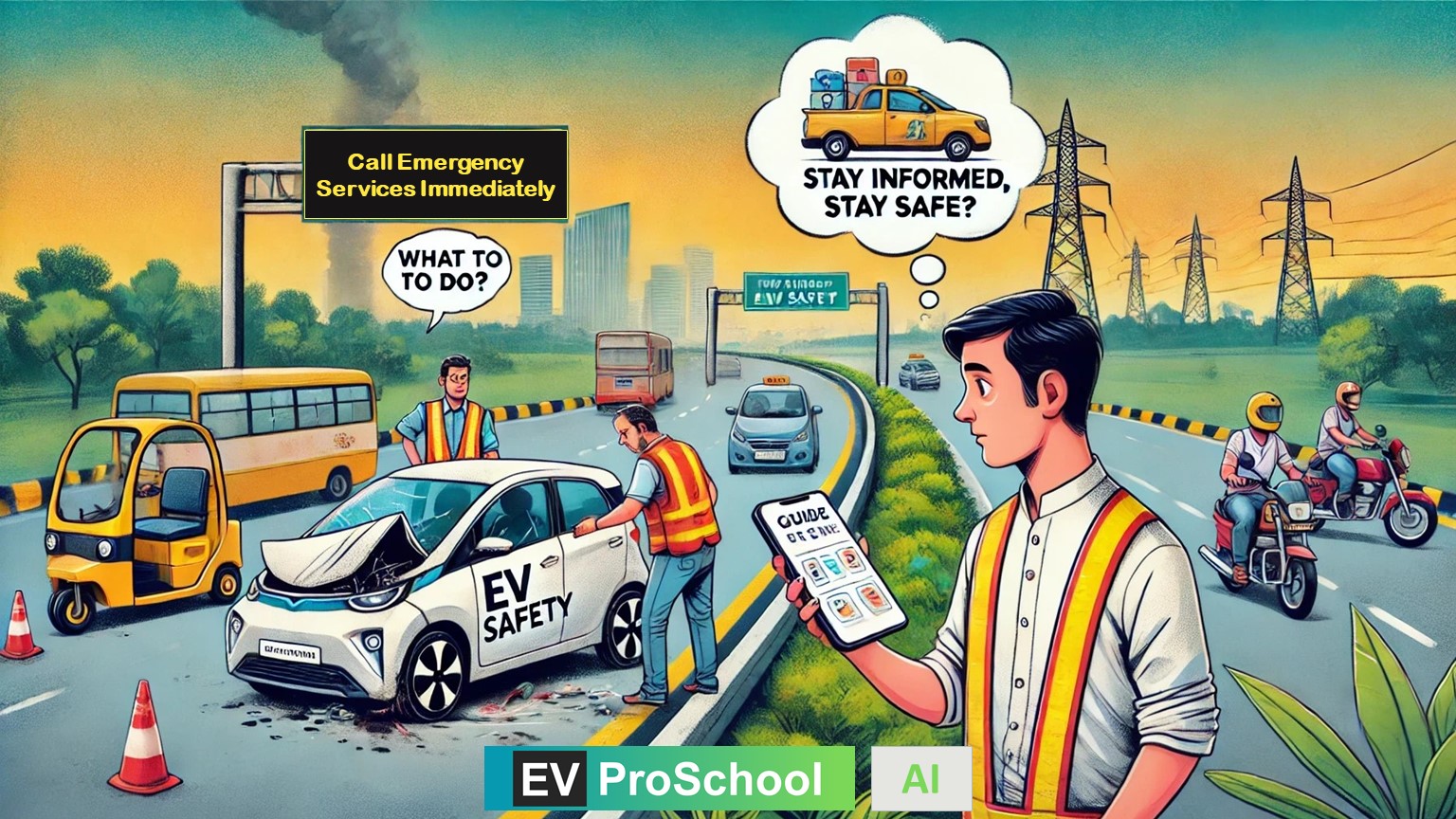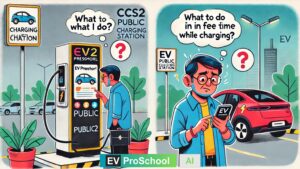Accidents can happen to anyone, and with EVs (Electric Vehicles) becoming increasingly popular, it’s crucial to understand how to respond safely. Whether you’re the EV driver, a passenger, or a bystander witnessing an EV accident, this guide will walk you through the essential steps to take.
What Should an EV Owner Do in an Accident?
- Prioritize Safety Over Reading Manuals:
In the middle of an emergency, there’s no time to search for or read the manual stored inside your EV. That’s why EV manufacturers (OEMs) provide safety resources, such as QR codes, to access critical information quickly. - Call Emergency Services Immediately:
Dial the local emergency response number to report the accident. Inform them that it involves an EV, as responders may need to take specific precautions when dealing with high-voltage systems. - Locate the Manual QR Code:
Many EVs have QR codes placed in accessible areas, such as:- The windshield or driver-side window
- Near the charging port
- On the sun visor or glove compartment
Scanning these QR codes provides instant access to the car’s safety instructions, including how to handle high-voltage batteries during an accident.
What Should a Witness Do?
If you come across an EV accident, here’s how you can help safely:
- Assess the Situation Without Touching the Vehicle:
EVs are powered by high-voltage batteries, which can pose risks of electric shock or fire if damaged. Do not attempt to cut cables or touch the car without proper knowledge. - Help Evacuate Safely:
If it’s safe to do so, help the occupants exit the vehicle. However, avoid direct contact with any exposed wires or damaged components. - Inform Emergency Responders About the EV:
Let first responders know the car is an EV so they can follow appropriate protocols.
Key Safety Considerations for EV Owners and Bystanders
- Do Not Cut Cables:
Cutting EV cables without proper training is extremely dangerous. High-voltage wires carry lethal amounts of electricity. - Avoid Contact With the Battery:
EV batteries are designed to be secure, but in case of severe damage, they may leak hazardous chemicals or catch fire. - High Voltage Doesn’t Mean High Risk:
EVs are as safe as ICE (Internal Combustion Engine) vehicles when handled correctly. High-voltage systems are well-contained and designed to shut down automatically in accidents. - Rescue Yourself First:
If you’re the driver or passenger, prioritize your safety. Exit the vehicle if it’s safe to do so and move to a secure location.
What Makes EV Accidents Different From ICE Vehicle Accidents?
- Battery-Related Hazards:
Unlike fuel tanks in ICE vehicles, EVs use lithium-ion batteries. Damaged batteries can pose risks of thermal runaway (fire) or chemical leaks. - Silent Operation:
EVs make little to no noise, which might cause bystanders to underestimate the danger. - Enhanced Safety Mechanisms:
Modern EVs are equipped with advanced safety features that minimize risks, such as automatic disconnection of high-voltage systems in a crash.
Should You Be Worried About EV Accidents?
While EV accidents involve unique considerations, modern EVs are engineered with safety as a priority. By following the steps outlined in this guide, you can minimize risks and ensure the safety of everyone involved.
Remember, preparation is key. Familiarize yourself with your EV’s safety features, including the location of the QR codes and emergency protocols, so you’re ready in case of an emergency.
Final Thoughts: Stay Safe, Stay Informed
EVs represent the future of transportation, but like any technology, understanding how to use them safely is essential. This guide equips you with the knowledge to handle EV accidents responsibly—whether you’re the driver or a helpful bystander.
Do you have insights or experiences to share about EV safety? Let us know in the comments

